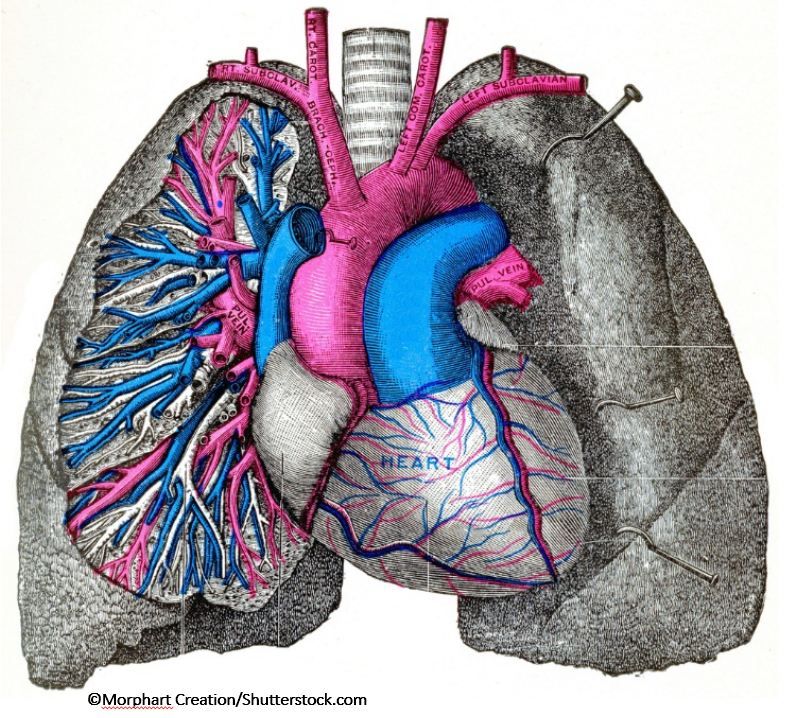Article
Congenital Heart Disease and Adult-onset Pulmonary Hypertension: Incidence and Impact on Mortality
Pulmonary hypertension is a common complication of CHD but a new Danish study is the first to report on population-based incidence and impact.

Improvements in surgical and medical management have led to an increase in the population of adults with congenital heart disease (CHD). Pulmonary hypertension is a common complication of CHD. Studies to date have described referral populations from tertiary care centers and have focused on patients with systemic-to-pulmonary shunts who develop pulmonary arterial hypertension. As a result, population-based incidence rates of pulmonary hypertension (PH) in CHD and the association with mortality have not been described.
In a paper currently in press in the American Journal of Cardiology, investigators used the Danish National Registry of Patients to identify individuals with adult-onset PH in the CHD population who had long-term follow-up data on file. Patients diagnosed with CHD and PH were identified on the basis of ICD codes. The Danish National Registry of Patients includes comprehensive data on hospitalizations, outpatient and emergency room visits, and surgical procedures. Patients with CHD were matched 1:10 for gender and birth year to individuals without CHD.
In total, 14,680 subjects with CHD were identified with a median follow-up of 22 years, 266 of whom were also diagnosed with PH. Compared with controls, patients with CHD and PH were older, more likely to be women, and more likely to have a systemic-to-pulmonary shunt. The cumulative incidence of adult-onset PH was 7.2% in the CHD population compared with 0.4% in the control cohort. The incidence of PH increased with both age and the severity of the congenital lesion. The incidence of PH in patients with systemic-to-pulmonary shunts was 8.3% compared with 5.3% in subjects with other types of defects. The overall prevalence of PH in adults with CHD was 1.1% and was similar in subjects with and without systemic-to-pulmonary shunts.
Cumulative short- and long-term all-cause mortality did not differ between CHD-PH patients with and without systemic-to- pulmonary shunts (24% at 1 year, 44% at 5 years, 52% at 10 years). However, after adjusting for gender, birth year, CHD severity, and the presence of noncardiac defects, PH in the setting of systemic-to-pulmonary shunts was associated with a hazard ratio of 1.8 (95% CI 1.1-2.9). The adjusted hazard for mortality was 4.3 (95% CI 3.3-5.6) for CHD subjects with PH compared with those without PH.
Contributions, limitations
This study is important for several reasons. First, unlike prior studies, which were largely comprised of referral populations, the current population was unselected and included the population of an entire nation. Second, the investigators described long-term follow-up whereas prior studies have been cross-sectional. Finally, by virtue of the comprehensive health outcomes records maintained in Denmark, the authors were able to exclude subjects with PH that predated adulthood.
There are important limitations to this study that are inherent to electronic health record and administrative databases. The authors are unable to comment on the underlying etiology of PH in their population without access to right heart catheterization data and other relevant diagnostic tests (eg, echocardiography, pulmonary function testing, or polysomnography). Reliance on ICD codes introduces the risk of misclassification, particularly for the PH and heart failure diagnoses. Finally, no data on medical therapy are presented to examine whether differences in treatment influenced outcomes. The major point from this report is that PH is common and associated with increased mortality in adults with CHD. The clinical implication is that this population warrants surveillance for the development of PH and referral for specialty care if suspicion for PH arises.
Source: Schwartz SS, Madsen N, Laursen HB, Hirsch R, Olsen MS. Incidence and mortality of adults with pulmonary hypertension and congenital heart disease. Am J Cardiol. Published online March 14, 2018 (doi: https://doi.org/10.1016/j.amjcard.2018.02.051) https://www.ajconline.org/article/S0002-9149(18)30287-X/abstract





